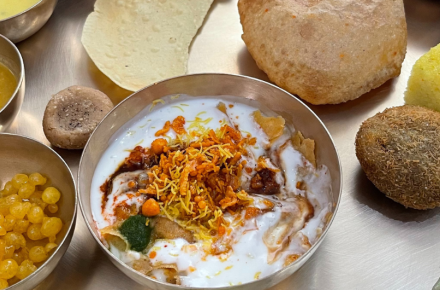Eating Tips for a Good Night's Sleep


According to the Centers for Disease Control (CDC) one-quarter of Americans report having occasional sleeplessness, and 10 percent of us struggles with chronic insomnia. Recently, SleepBetter.org released an analysis of the CDC data to help us determine if we are well rested or sleep deprived.
By any measure, challenges to a restful night’s sleep are on the rise, and it’s of concern since sleeping well supports our positive energy, cognitive health, and better moods, as well as our physical health. And most of us have had the experience of how poor sleep can lead to less-than-stellar eating habits. Several recent studies, covered in depth by Michal Breus, PhD, in the Huffington Post, illustrate the mechanisms by which we are more likely to reach for sweeter or saltier foods when we’re overtired.
But sleep, your mental state, and food go hand-in-hand in other ways, too. Choosing a plant-based diet and taking regular moments of quiet are good remedies for sleeplessness. Here are few additional eating tips to ensure a restful night’s sleep.
- Have a modest, early dinner (finishing three to four hours prior to bedtime). Resist the temptation to have large, rich meals late in the evening. They can trigger acid reflux and indigestion, which interfere with sleep.
- Be conscious of common sleep-interrupting foods and drinks: alcohol, caffeine, energy drinks, as well as fatty, processed meats and other processed foods, such as chips and candy.
- If you do need a snack before bed, try tryptophan-rich nut butter on sprouted grain toast, or a small serving of nuts and brown rice with vegetables.
© Kripalu Center for Yoga & Health. All rights reserved.
Articles, programs, promotions, recipes, and more, delivered right to your inbox.
You May Also Like
Related Programs

Soften into Your True Self


Ignite Your Practice


Kripalu Retreat for Men



The Highly Functioning Codependent


Awaken Your Inner Magic



Yoga Therapeutics



The Highly Functioning Codependent


The Eternal Season of Asana


Yoga and Qigong

Get Our Catalog
Get a sneak peek of everything happening at Kripalu in the coming season. Sign up to get our print catalog delivered to your doorstep.
Newcomer's Guide
New to Kripalu? Explore who we are, what we offer, and begin your transformation today.


































